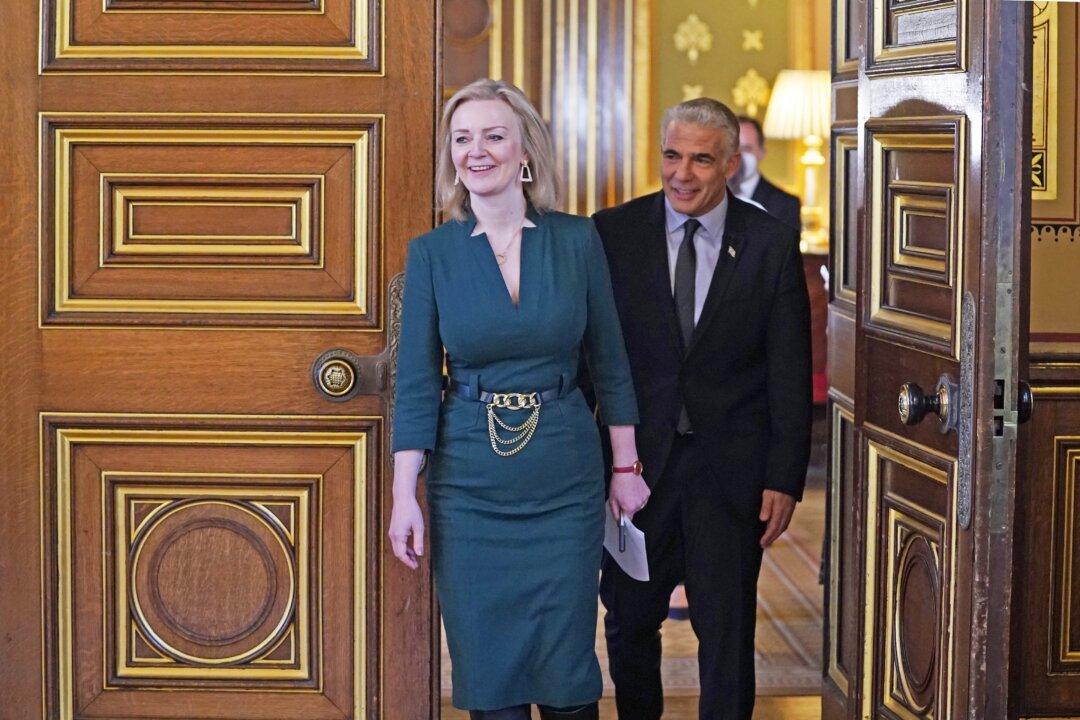Britain and Israel have pledged to work together to stop Iran from developing nuclear weapons, as the two nations agree to boost collaboration on issues such as cybersecurity, defence, and trade.
British Foreign Secretary Liz Truss said the UK will “work flat out” to prevent Iran from securing nuclear weapons, after she signed a “memorandum of understanding” with Israeli Foreign Affairs Minister Yair Lapid in London on Monday.





